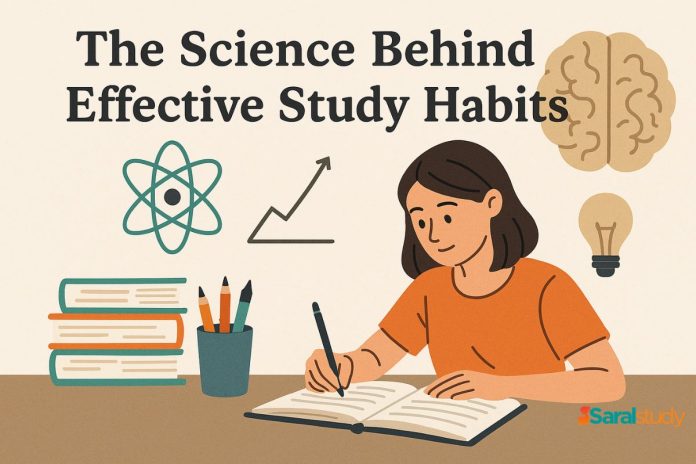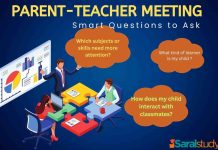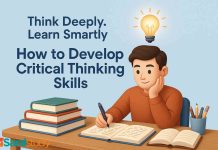In today’s fast-paced academic environment, understanding the science behind effective study habits is crucial for students aiming to enhance their learning efficiency. Learning and memory are essential components of cognition that lay the foundation for effective studying. Therefore, in order to stay ahead, it becomes important to know the right tools and techniques.
How do we learn?
Are you studying for hours but still not seeing results? What if there’s a scientific reason why your efforts aren’t paying off?
Learning is “a relatively permanent change in behaviour or knowledge that results from experience”, according to behaviour psychology. That being said, whatever you perceive, observe and reflect eventually becomes learning.
One of the many interesting aspects of learning is that it is directly linked with reinforcement. You can boost one behaviour by rewarding and reduce another by punishing; these are known as positive and negative reinforcement, respectively.
The next question arises: how is this related to effective studying habits?
The catch is that using these mechanisms, one can reward oneself after study sessions, and steadily, one’s brain will get tricked into wanting to have more such study sessions.
According to a behavioural psychologist, B.F. Skinner, wiring a preferred activity as a reward for completing a less preferred one, for example, “after you finish your homework, you can play video games,” further motivates students to engage in necessary but less enjoyable study tasks. This is known as the Premack Principle.
How do we memorise?
Memorising is a process of collecting new information, storing it and recalling it when needed. Formally, there are three stages to memory: Encoding, Storage and retrieval.
- Encoding: This is the first stage. In this stage, the information is transformed into a format that your brain could store. Encoding takes place when you pay attention to something and connect it to what you already know.
- Storage: In this stage, the information after encoding is kept in your memory system for a period of time. This can be a sensory memory (lasting a few seconds), short-term memory (lasting a few seconds to minutes) or long-term memory (lasting for days, years or even a lifetime).
The duration of memory depends on the strength of connections between brain cells. - Retrieval: This last stage is the process of returning stored information to awareness when needed, such as remembering a friend’s birthday or recalling an answer during exams.
Relationship between Learning and Memory
According to cognitive psychology, learning is the process of acquiring new knowledge, skills, or behaviours through experience, study, or instruction. Memory is the process by which acquired information is encoded, stored, and retrieved when needed. Hence, learning and memory are highly interconnected processes.
Learning is like the reception of an institute, where new information is gathered, and Memory is the storage room where all the information is stored. Without the memory, that information will not be useful as it won’t be retrievable when needed.
Before moving on to the study methods that work, let us review which habits hinder your performance.
What negatively impacts Learning and memory and hinders study habits?
Stress and Anxiety
Stress and anxiety are something we all have experienced in our lives at some point or the other. It is almost inevitable to avoid stress and anxiety. Stress plays a positive and negative role in our daily functioning. For example, stress about the completion of homework makes us start doing our homework (this is eustress), whereas taking too much stress about the exam in the exam hall sometimes makes us go blank (this is distress). Similarly, stress has a dual functioning in terms of memory; stress enhances encoding in some contexts, but it can also negatively affect retrieval, which sometimes leads to us “going blank” in stressful moments.
Lack of attention and concentration
Do you remember sitting in a very boring class where taking the lecture feels like torture? With every minute, your mind wanders off to other interesting things. How much of the learning material did you use to remember after the class that was taught? A very insignificant amount, right? Maybe a term or two. That was so because to encode information, you need to pay attention and concentrate. Because if you don’t pay attention, it won’t be stored, and then you will not be able to recall it.
Poor Emotional state and motivation
I am pretty sure whenever you feel negative emotions such as anger or sadness you cant concentrate on significantly important things. Negative emotional state and poor motivation impair memory by negatively impacting attention and concentration. Working on emotional regulation and value-based reinforcement learning leads to a better emotional state and motivation.
1. Environmental Distractions
Environmental distractions such as noise, movement, and interruptions significantly impair learning and memory by dividing attention, increasing cognitive load, and disrupting the encoding and retrieval of information. Empirical studies demonstrate that students exposed to distracting environments, whether in classrooms with high background noise or during multitasking with digital devices, experience reduced comprehension, diminished memory retention, and lower academic performance compared to those in a focused setting.
2. Fatigue and poor physiological health
Fatigue and poor physiological health, especially in the form of sleep loss and physical exhaustion, significantly impair learning and memory by affecting attention, slowing down cognitive processing, and interfering with working and episodic memory functions. Experimental and neurophysiological research indicates that acute and chronic sleep deprivation significantly increase reaction time, decrease selective attention and compromise memory encoding and retrieval. All of these negative impacts highlight the serious need for proper rest and physical health for optimal learning outcomes.
3. Poor organisation and time management
When studying, proper organisation and time management are very important because poor organisation and time management increase stress and impair cognitive self-regulation. Organising and time management increase stress and impair cognitive self-regulation. Organising helps boost mental clarity, whereas time management reduces stress and enhances concentration. Poor organisation and time management use important cognitive resources to process unnecessary and irrelevant components, as it generates a feeling of overload and anxiety, which further disrupts concentration and memory processes.
Study Methods that actually work!!
1. Establish a reward system
Keeping a reward for yourself after a goal enhances a positive attitude towards the process. These rewardsreduces the negative feelings towards learning material as you anticipate the reward more after every study session. The reward can range from a quick walk in nature, 5 5-minute call with your friend, reading or a healthy snack. These reward systems work on the principle of the brain’s dopaminergic pathways, which help in the formation of habits.
2. Interleaved practice
What if I tell you to study your subjects by mix-matching them rather than blocking periods for one specific subject? It would feel like a nightmare for some of you, just as I used to feel. Studying more than one subject within one study session used to feel so wrong. Our brain doesn’t like to be bored; it looks for novelty, and studying more than one subject increases the brain’s concentration, leading to increased retention of knowledge.
Interleaving involves mixing different topics or types of problems within a single study session, rather than focusing on one subject or problem type at a time.
3. Device Mnemonics
Mnemonics refers to existing or creating acronyms, rhymes, visualisation techniques or sentences to memorise concepts or factual information. For example, the mnemonics to learn the colours of the rainbow in order are VIBGYOR, standing for violet, indigo, blue, green, yellow, orange, and Re, respectively. Studies have shown that mnemonics create a meaningful association and reduce cognitive load, which makes information more accessible.
4. Feynman Technique
Feynman technique refers to simplifying complex concepts as to teaching someone. It helps establish deeper understanding and improve memory retention. It also facilitate long-term recall by promoting meaningful processing rather than rote memorisation. So next time while revising, try to teach your topics to someone else.
5. Pomodoro Technique
Pomodoro technique is a time management technique where 25 minute is dedicated to distraction free focused work and learning followed by 5 minute break. This reduces cognitive fatigue, increases productivity as its manageable and tackle procrastination.
5. Join the Dots (Interconnect Different topics with each other)
Connecting different topics-also known as integrative or relational learning-enhances memory and understanding by encouraging learners to see patterns and relationships across concepts. Research in cognitive science shows that making cross-topic connections strengthens retrieval pathways, promotes deeper comprehension, and supports transfer of knowledge to new contexts. Integrative assignments and cumulative assessments have been found to improve retention and problem-solving skills, as students are better able to apply and synthesise information from multiple domains.
6. SQ3R Method
The SQ3R stands for survey, Question, Read, Recite and Review. This method states that to comprehend a concept or a topic, one should survey, that is to skim through the whole text, Read Questions based on the topic or write down questions that emerge while skimming through the text. The next step is to read the whole text, recite whatever you understood and then review what you learned and what you didn’t.
This method’s structured approach promotes active engagement, critical thinking and repeated retrieval, which collectively enhance understanding and long-term memory of complex texts.
7. Active Recall Method
Active recall, which involves testing oneself on learned material rather than passive review, is strongly supported by cognitive psychology research as one of the most effective learning strategies. Studies show that retrieving information from memory strengthens neural connections and improves long-term retention far more than re-reading or highlighting. Active recall also helps identify knowledge gaps, directs future study, and is a core component of high-yield learning techniques such as practice testing and flashcards.
8. Spaced Repetition
Spaced Repetition refers to the process of reviewing what you’ve learned several times with increasing breaks in between each other. For example, revising in a few hours, then 1 day, 3 days, 7 days, 14 days and then a month. This method is based on the concept of a learning curve, which reminds you of the material just as you’re about to forget it, which strengthens your memory.
Bonus
Use time effectively (that 5 mins is also a golden time)
A lot of the time, we waste a few minutes here and there thinking of it as an insignificant amount of time to do anything productive. But the thing is, those few insignificant time is still a treasure. Using those 5 minutes in the morning while commuting to your school or college to revise or read the study material could give your memory an instant boost. Therefore, use your time effectively, it is the greatest resource one could have.
Use technology to your advantage
Technology exist to make our life easier and effective and not to keep us distracted and unproductive. When used rightly your digital devices becomes an asset. It can come handly in using mobile applications to put up timers, revise using flashcards using apps made for flashcards (an effective way to active recall), record yourself teaching your topics when don’t have other people to use feynman technique and many more.
Adapt to the growth mindset- be more open-minded to those challenges
Along the way of studying and adapting productive study habits and in life in general, you will face a lot of challenges, either it will make you feel overwhelm, exhausted or make you self-doubt. An effective way to deal with this is to adapt to a growth mindset. What if you feel you don’t have great teachers, you could find numerous number of resources on the internet, such as study material pdf, youtube videos and quizzes.
Conclusion
In summary, developing good study habits is not about working harder, but working smarter and learning how your brain works best. Many things can interfere with learning, such as stress, distractions, fatigue, and poor preparation. But the best news is that there are simple and scientifically proven techniques that you can implement to improve your memory and streamline studying.
Reinforcing yourself when you have studied, varying the topics, employing strategies such as mnemonics, teaching others what you have learned, and dividing your study periods into small, concentrated blocks all aid better retention. Making associations among topics, employing techniques such as SQ3R, quizzing yourself using active recall, and refreshing what you have learned at widely spaced intervals can also work significantly. Don’t forget to make the most of your time-even a couple of minutes here and there can come in handy-and let technology aid your learning rather than distract you.
Above all, maintain a positive attitude and be willing to learn in new ways, even when it becomes challenging. With these tips, you can reduce stress and make studying more efficient, assist you in achieving your academic objectives, and also enjoy the journey in between.
Also Read: How to Improve Focus and Concentration for Exams – Top Study Tips





